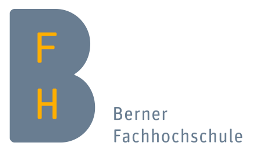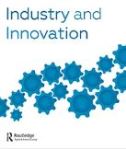As the urgency to curb the emission of greenhouse gases and limit the consumption of natural resources continues to increase, reliance on business-as-usual activities and practices does not represent a viable operational choice for most organizations. In response, organizations develop new products, processes, and management concepts to reduce their use of natural resources including water and energy, thereby enhancing their environmental performance. We refer to these developments as green innovation, also called eco-innovation or sustainable innovation (e.g., Kemp and Oltra 2011). Green innovation has been indicated as a promising route to tackle some of the most pressing challenges of this generation, such as climate change and the uneven distribution or supply of key resources such as freshwater or clean energy (George, Schillebeeckx, and Liak 2015). However, developing, promoting, adopting, and diffusing green innovation within and across organizations at a larger scale is a challenge. Not just from a technological standpoint, as organizations scramble to come up with technologies that increase the efficiency with which natural resources are transformed, but also from a cultural standpoint. This is because green innovation entails changes to how organizing occurs: from collaborations to the relationship with internal and external stakeholders, from finding new ways to establish their legitimacy.
[…for more please view the complete CfP here…]
More recently, a growing body of literature has embraced the idea that culture can offer a valuable toolkit for the pursuit of organizational goals, including green innovations. If culture is a system of shared assumptions, values, and beliefs that govern how individuals and organizations behave in a larger social system (Giorgi, Lockwood, and Glynn 2015; Bertels and Howard-Grenville 2012), cultural elements that can be leveraged to cultivate green innovations could be several, varying from institutional logics and issue fields (e.g., Hoffman and Jennings 2011; Oberg, Lefsrud, and Meyer 2021), institutional infrastructures (Gegenhuber, Schüßler, Reischauer, and Thäter 2022), frames (Ansari, Wijen, and Gray 2013; Lefsrud and Vaara 2019), sensemaking (e.g., Soderstrom and Weber 2019), metaphors and stories (e.g., Biscaro and Comacchio 2017), discourse (e.g., Nadkarni et al. 2022; Lefsrud and Meyer 2012), and collective imaginaries (e.g., Augustine et al. 2019). Hence, from this perspective, culture as a binding humus that can be leveraged to achieve cultivating green innovation, but could also prevent it.
Even though some studies have offered in-depth accounts on how cultural elements can be leveraged to avoid, resist, and refrain from cultivating green innovations or even pretend (e.g., “greenwashing”) to do so (Delmas and Burbano 2011), current theorizing does not allow us to fully explain the role of cultural elements in the cultivation of green innovation. It is precisely because firms are increasingly pressured to bring and advance green innovations (George, Schillebeeckx, and Liak 2015) that new scholarship at the intersection of organization and innovation studies is needed (Ferraro, Etzion, and Gehman 2015; Jennings and Hoffman 2017).
Research Topics:
Our special issue intends to create a forum for studies examining how organizations leverage cultural elements to cultivate green innovations, following the call for an “extension of existing theories, and perhaps the introduction of a new theory that explicitly addresses [the cultivation of] tangible (natural) resources” (George, Schillebeeckx, and Liak 2015, 1602). We equally welcome submissions of papers of different formats – qualitative, quantitative, mixed-methods –, as well as papers offering a conceptual contribution. Possible questions of interest include but are not limited to:
Leveraging Culture to Cultivate Green Innovation Across Organisations and in Institutional Fields:
- How do organizations use broader narratives (e.g., circular economy, green transition, sustainable economy) or frames to cultivate green innovation?
- How do they balance institutional complexity to cultivate green innovation?
- How do organizations mobilize support to promote the adoption, diffusion, and institutionalization of green innovation?
- How are cultural elements harnessed by networks supporting green innovation? And which network positions and network structures do favour the cultivation of green innovation?
- What is the relation between the social evaluations (e.g., identification, stigma, legitimacy) of green innovation and their adoption? And how do organizations cultivating green innovation try to manage, influence, or steer such evaluations?
- What is the role of field-configuring events, such as congresses, conferences, or fairs in the cultivation and promotion of green innovation?
Leveraging Culture to Cultivate Green Innovation in Organisations:
- How are tensions and paradoxes emerging from the cultivation of green innovation managed within organizations? And do different types of green innovation (e.g., processes, ideas, products) produce different tensions, requiring specific harnessing of cultural elements?
- How do individuals leverage frames to champion green innovation within the firm?
- How do frames of green innovation change through the innovation process and how are these frames negotiated within the organization? How is green innovation negotiated in meetings?
- How does green innovation obtain legitimacy and consensus within the firm?
- How do (emerging) technologies shape how managers and individuals make sense or give sense to green innovation?
- What are the personal characteristics of managers and employees that successfully champion green innovation? And how do managers and employees use their network to successfully champion green innovation?
Special Issue Editors:
- Georg Reischauer, WU Vienna University of Economics and Business, Austria.
- Claudio Biscaro, Johannes Kepler University Linz, Austria.
- Lianne Lefsrud, University of Alberta, Canada.
View the compete CfP here.
Submission deadline (full papers): 30 September 2022.
Expected date of publication: end of 2023/beginning of 2024.








